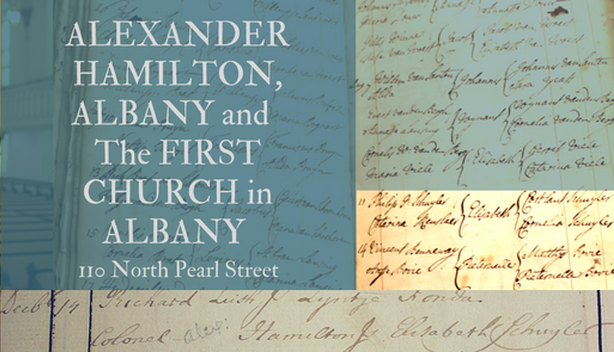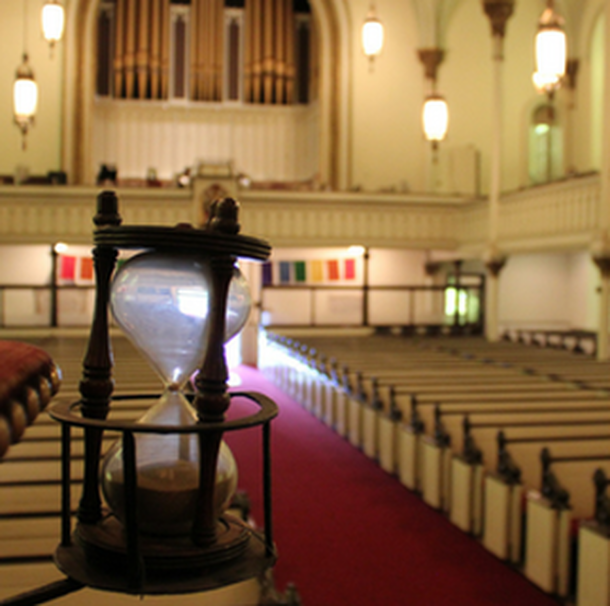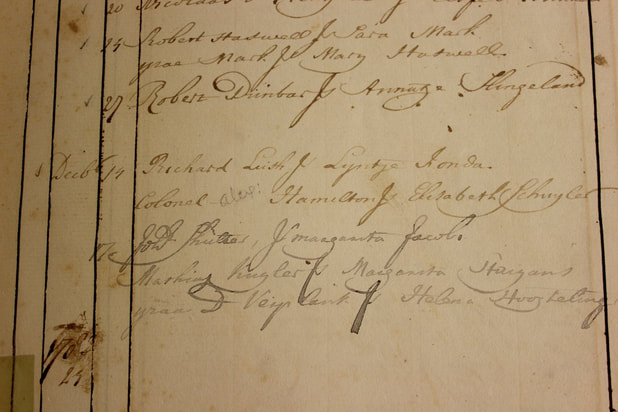|
On the eve of his own death, he wrote to “my very dear Eliza,” to say that if he did not survive he expected “to begin, as I humbly hope from redeeming grace and divine mercy, a happy immortality.”
The Dutch Reformed Church on North Pearl Street was packed with mourners to hear Hamilton’s friend, the Reverend Eliphalet Nott of Albany’s Presbyterian Church, deliver an eloquent eulogy which denounced the evil of dueling. It was one of the most influential funeral sermons in American history. It helped mobilize public and political opinion against dueling, and it led eventually to passage of a law requiring every public officer in New York to taken an anti-dueling oath. – Jim Folts December 2016 Marriage entry on December 14, 1780 for Colonel Hamilton and Elizabeth Schuyler.
|
Alexander Hamilton, Albany and
|
|
h us.© 2023 The First Church in Albany. All Rights Reserved.



